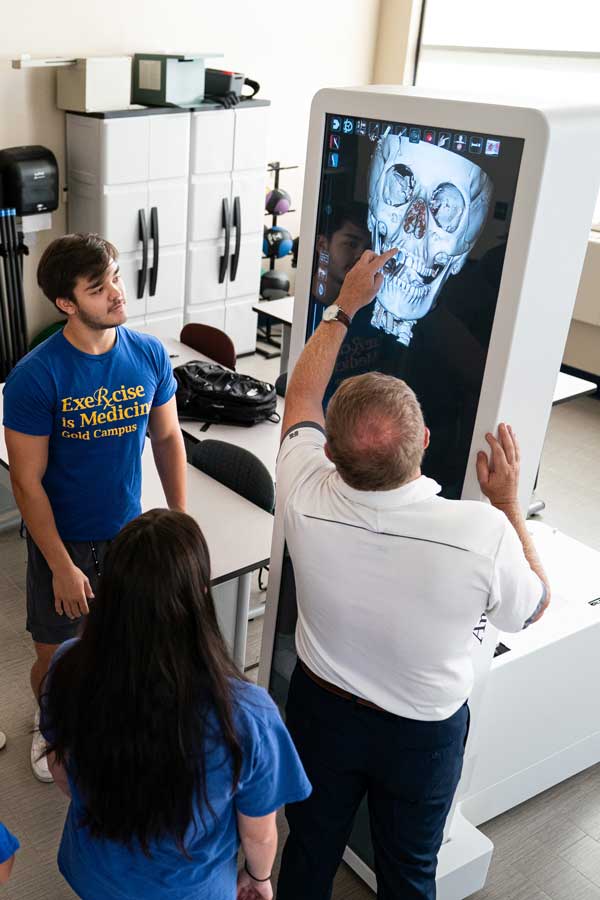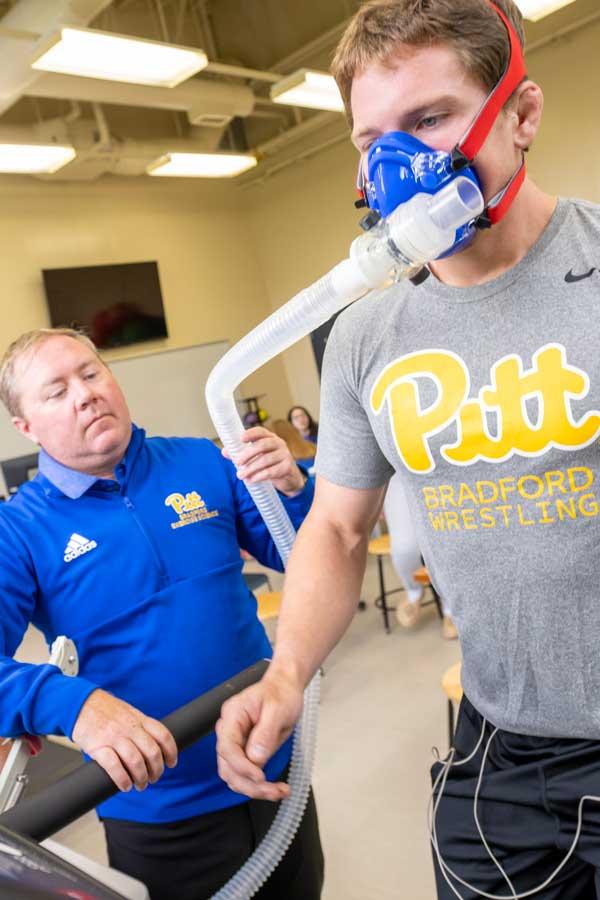
Exercise Science - BS
You can help people stay healthy and happy.
Why study exercise science at Pitt-Bradford?
You’ll get a well-rounded education in exercise science in small classes where you’ll work closely with your professors who will support and mentor you and help you succeed.
You’ll also get hands-on experience in the labs and on internships, which will give you real-world skills and enhance your resume.
What will I learn?
You’ll study anatomy, physiology, biomechanics, exercise prescription, and nutrition. You’ll also conduct fitness assessments, evaluate risk factors and health behaviors, and develop and implement safe and effective exercise prescriptions.

What can I do with a degree in exercise science?
You’ll be prepared for a rewarding career dedicated to improving health and well-being and helping people achieve their health and fitness goals. You’ll also be ready for graduate school if you choose to pursue a career in physical therapy, occupational therapy, chiropractic, physician assistant or medicine.
Job titles:
- Aquatics director
- Conditioning/strength coach
- Youth development director
- Corporate fitness trainer
- Exercise physiologist
- Fitness director
- Clinical rehab specialist
- Group exercise instructor
- Personal trainer
- Wellness coach
- Sports nutritionist
Employers:
- Rehabilitation centers
- Hospitals
- Physical therapy offices
- Sports teams
- Insurance companies
- Research firms
- Fitness center
- Public health organizations
- YMCAs
Success Stories
Meghan Kapp ’25
Meghan Kapp's experience as a student-athlete at Pitt-Bradford has profoundly impacted her beyond expectations.
Jordan Walsh '25
Jordan Walsh of Allegany, N.Y., a senior exercise science major, has discovered her passion while volunteering as an emergency medical technician in her hometown.
Logan Christie ’25
At a young age, Logan Christie was inspired to pursue this career to help others regain their independence through occupational therapy.
-
EXSCI 0225
Functional Human AnatomyThe study of the structure and functional significance of the human body- with emphasis on neural, musculoskeletal and cardiopulmonary systems. The introduction to clinical application of relevant anatomy, with respect to some common conditions seen in the health/medical profession and how it relates to physical activity and exercise will be examined. -
EXSCI 1415
ECG Interpretation/Stress TestingThis course provides students with information designed to study topics that include cardiovascular dynamics as studied through anatomy, electrophysiology, and the pathology of the cardiovascular system. The role of exercise in assessing both cardiovascular pathology and determining functional capacity for exercise prescription will also be examined. Specific emphasis will be placed on analyzing the cardiovascular system through non-invasive methods of evaluation.
Program-Related News

Professors publish and present
Alumnus publishes first article with faculty mentors.

Enrollment up nearly 9%
Increased retention among reasons for gains.

New partnership announced with Northeast College
Agreement allows Pitt-Bradford students to earn Doctor of Chiropractic in three years.


